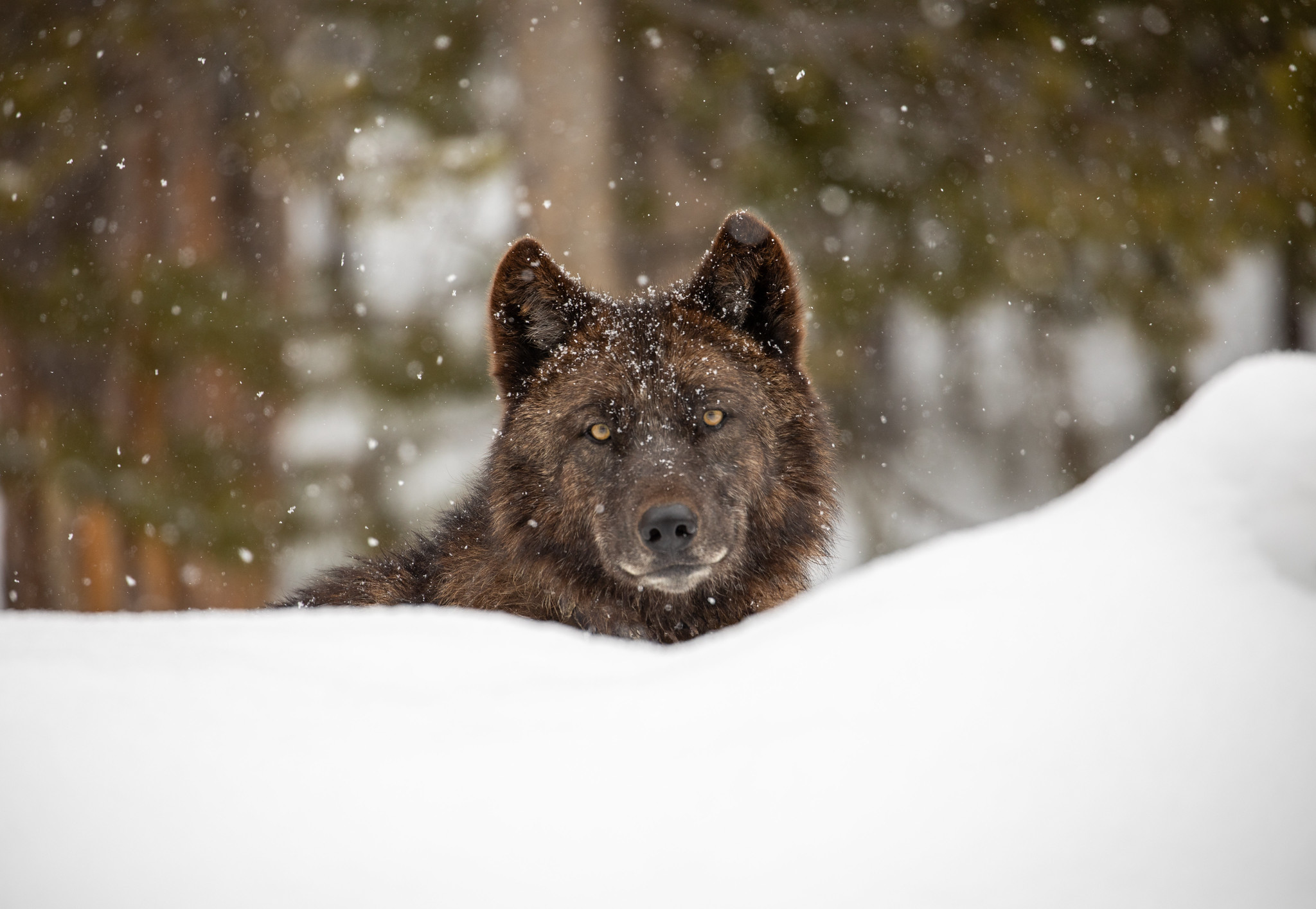Last week, a federal judge restored protections for most gray wolves – but not those in Montana, Idaho, and Wyoming, where wolves have been under intense attack. After decades of efforts to restore gray wolves to the lands they once roamed, Idaho, Montana, and Wyoming have given hunters and trappers free reign to kill wolves, and to do so using barbaric practices.
Last year, Montana and Idaho legislatures passed laws with the intention to wipe out 85 percent to 90 percent of the wolves in these states. In Montana, gray wolves can be baited, strangled by neck snares, and shot at night using artificial light or night vision scopes. In Idaho, people are allowed to bait, snare, and use snow mobiles and all-terrain vehicles to chase wolves until they are too exhausted to run. As a result, more than 500 gray wolves have been killed in Idaho, Montana, and Wyoming in recent months.
Even the wolves that live in Yellowstone and Glacier National Parks are at risk if they leave their protected area and explore land adjacent to the parks. Already, 24 Yellowstone wolves -- approximately 30 percent of the park's entire wolf population -- have been killed since September after crossing the park border.
For years, Tribal Nations have led the charge to protect gray wolves. These Nations continue to do so with "The Wolf: A Treaty of Cultural and Environmental Survival" -- a blueprint for wolf management and the restoration of the species. More than 700 Tribal Nations on both sides of the US and Canadian border -- all sharing a strong cultural connection to the wolf -- have signed on to demand wolves be protected and that Tribal Nations play a pivotal role in deciding how wolves are managed.
"For Indigenous people, the [Endangered Species Act] wolf delisting, and the now ongoing decimation of the wolf by white trophy hunters, trappers, and bounty hunters, isn't simply an 'environmental' or 'wildlife' issue, it is a social justice issue," said Tom Rodgers, president of the Global Indigenous Council.
In light of these anti-wolf laws, the US Fish and Wildlife Service (USFWS) is currently reviewing the status of gray wolves in western states. It could make a decision on restoring protections for Northern Rockies gray wolves any day now.
That’s why it’s more important than ever to join the Tribal Nations’ call to protect wolves for generations to come. Tell Acting USFWS Director Williams to act quickly, and immediately restore endangered species protections for the Northern Rocky Mountain gray wolves.
